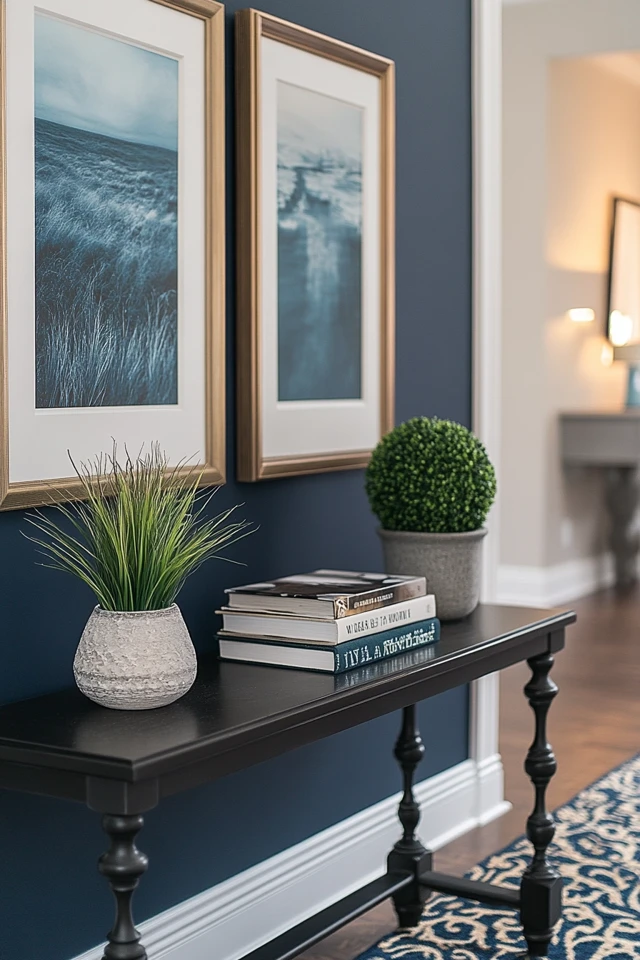Wall art has the power to completely transform a space, adding personality, texture, and a sense of completeness to your decor. Whether you’re decorating a cozy living room or a minimalist bedroom, the right pieces of wall art can make your home feel more polished and uniquely yours.
In this guide, we’ll explore 10 creative ways to incorporate wall art into your decor and elevate any room with style and sophistication.
1. Create a Gallery Wall
A gallery wall is a dynamic way to showcase your favorite pieces of art, photography, or personal mementos.
How to Create a Stunning Gallery Wall:
- Mix Sizes: Combine small, medium, and large frames for a layered look.
- Unify with a Theme: Stick to a consistent color palette or subject matter.
- Experiment with Layouts: Lay frames on the floor to arrange your design before hanging them.
Pro Tip: Use frames in varying finishes—like wood, black metal, or gold—to add depth while keeping the arrangement cohesive.
2. Incorporate Oversized Artwork
An oversized piece of artwork can serve as a dramatic focal point for a room. It makes a bold statement and eliminates the need for multiple smaller decor items.
Where to Use Oversized Art:
- Over a sofa or bed to anchor the furniture.
- Above a fireplace to draw attention to the mantel.
- On a blank wall in a dining room or hallway for a gallery-like feel.
Pro Tip: Choose a piece with a color scheme that complements your room’s palette to ensure cohesion.
3. Add Texture With 3D Wall Art
3D wall art, like sculptures, woven pieces, or metal designs, introduces texture and dimension to your space.
Ideas for 3D Art:
- Macramé Wall Hangings: Perfect for bohemian or eclectic spaces.
- Metal Sculptures: Adds a modern, industrial vibe.
- Shadow Boxes: Display small objects, textiles, or keepsakes.
Pro Tip: Use 3D art sparingly to avoid overwhelming the room—one or two pieces per wall are usually enough.
4. Use Art to Define a Space
Wall art can help delineate specific areas in open-concept homes or multipurpose rooms.
How to Use Art for Definition:
- Place a large framed piece above a dining table to define the eating area.
- Hang bold art behind a desk to create a designated office space.
- Use diptych or triptych (multi-panel) art pieces to visually separate zones.
Pro Tip: Match the scale of the artwork to the size of the area you’re defining for better visual balance.
5. Embrace Bold Colors and Patterns
Introduce vibrant hues or intricate patterns through wall art to inject personality into a neutral space.
Tips for Adding Bold Art:
- Choose a single bold piece to avoid clashing with other decor.
- Pair vibrant art with neutral furniture and accessories to let it shine.
- Use abstract designs for a modern, contemporary look.
Pro Tip: If you’re hesitant about committing to bold colors, start with smaller prints or temporary wall decals.
6. Layer Wall Art With Shelving
Combine wall art with shelves to create a curated, multidimensional display.
How to Layer Art With Shelves:
- Lean framed prints or canvases against the wall on floating shelves.
- Pair art with decor items like vases, books, or candles for a styled look.
- Use a combination of vertical and horizontal frames for variety.
Pro Tip: Keep shelf decor minimal to avoid overshadowing the artwork.
7. Try Black-and-White Photography
Black-and-white photography is timeless and versatile, fitting seamlessly into any decor style.
Where to Use Black-and-White Photos:
- In a gallery wall for a classic, cohesive look.
- Above a console table in an entryway to make a sophisticated first impression.
- In a bathroom for a clean, modern vibe.
Pro Tip: Choose images with strong contrasts or geometric compositions to make a bigger impact.
8. Highlight Art With Lighting
Proper lighting can elevate your wall art, making it stand out and adding an upscale gallery feel to your home.
Lighting Ideas:
- Use picture lights to highlight framed art or photos.
- Add spotlights or track lighting to illuminate oversized or 3D pieces.
- Place LED strip lights behind canvases for a backlit glow.
Pro Tip: Choose warm lighting to create a cozy, inviting ambiance.
9. Frame Unique Pieces
Wall art doesn’t have to be limited to paintings or prints—you can frame almost anything to create a one-of-a-kind display.
Creative Framing Ideas:
- Textiles: Frame vintage scarves, tapestries, or fabric samples.
- Maps: Highlight destinations that hold personal meaning.
- Collections: Showcase pressed flowers, stamps, or small artifacts.
Pro Tip: Use shadow box frames for items with depth, like textiles or keepsakes.
10. Use Art to Balance the Room
Strategically placed wall art can balance the proportions of a room or fill awkward spaces.
Balancing Tips:
- Hang a vertical piece in narrow spaces, like between windows or next to a door.
- Use horizontal art to elongate walls in living or dining rooms.
- Group smaller pieces in a grid layout to create balance on a large blank wall.
Pro Tip: Ensure the center of the artwork is at eye level (about 57–60 inches from the floor) for the most pleasing visual effect.
Picture Gallery
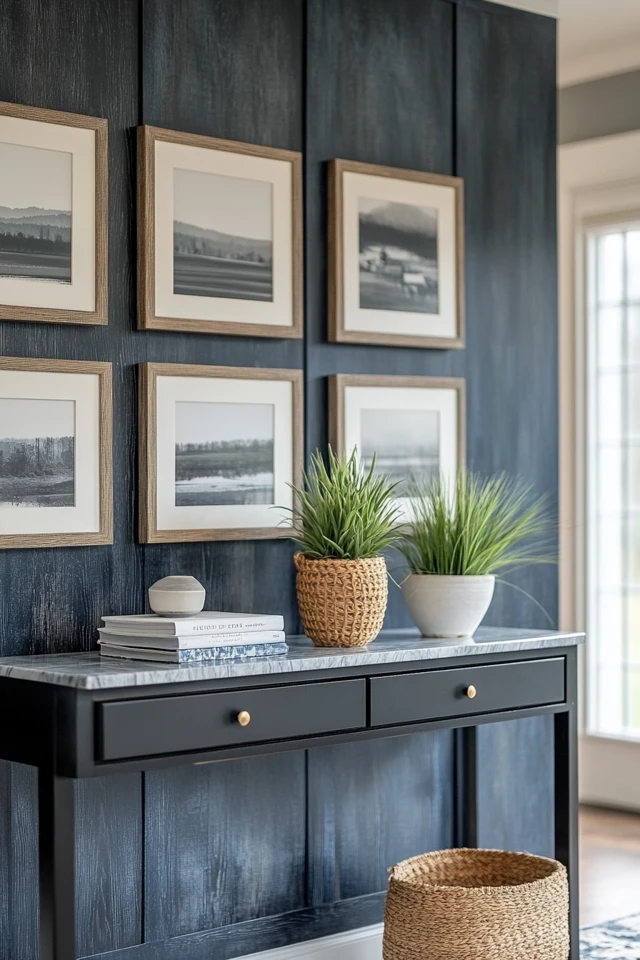
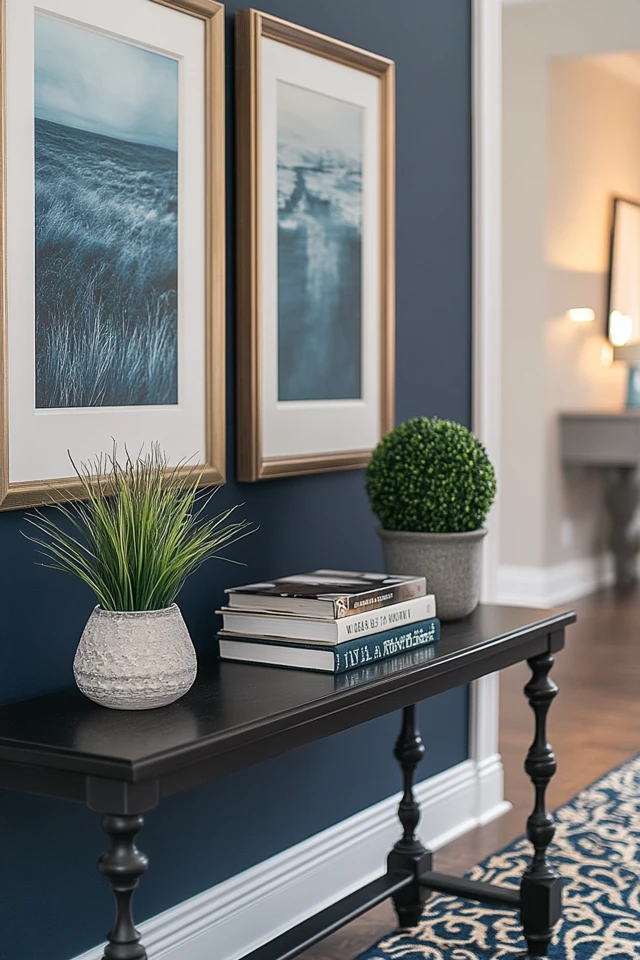
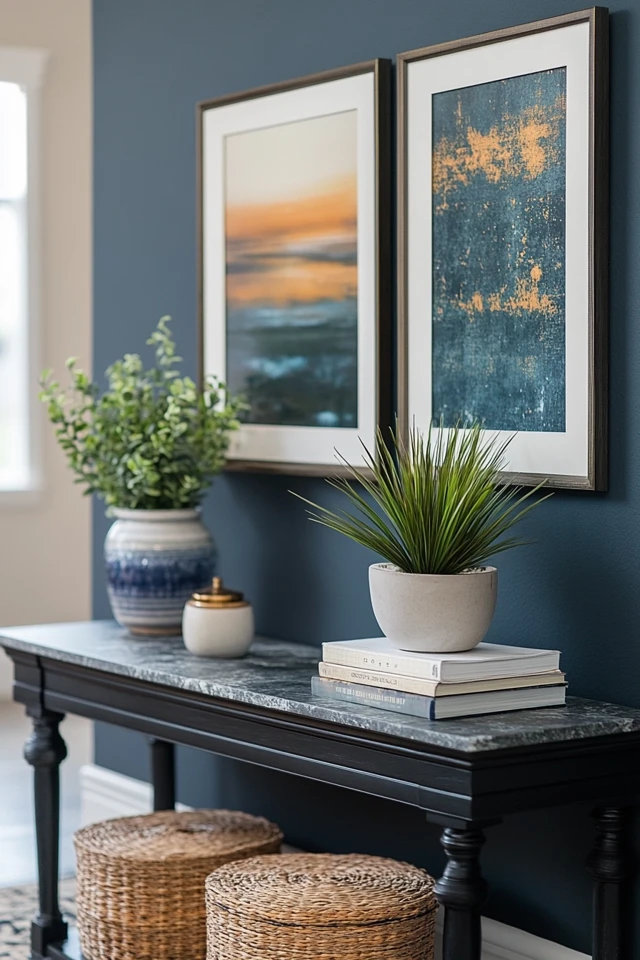
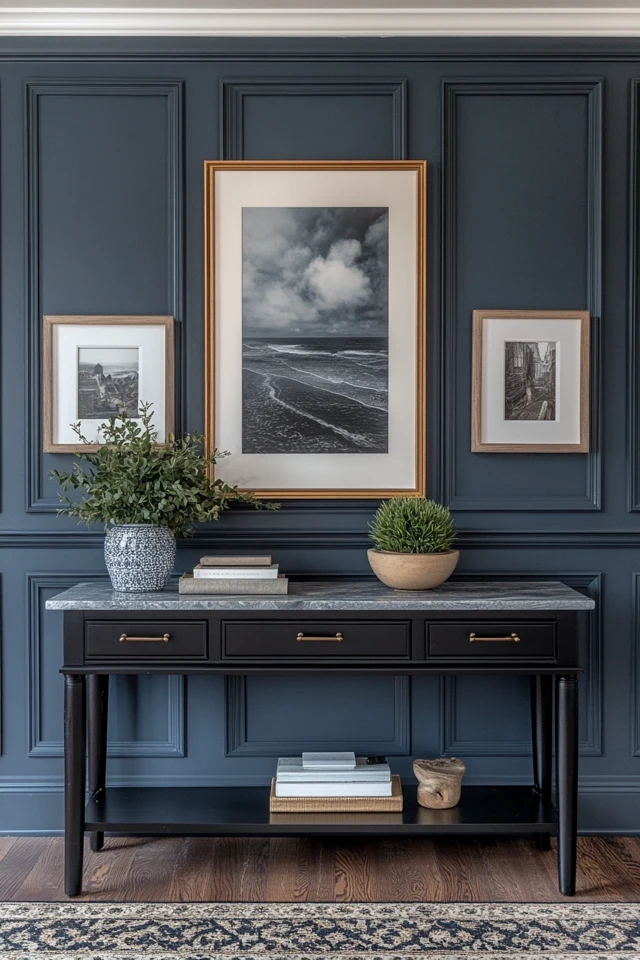
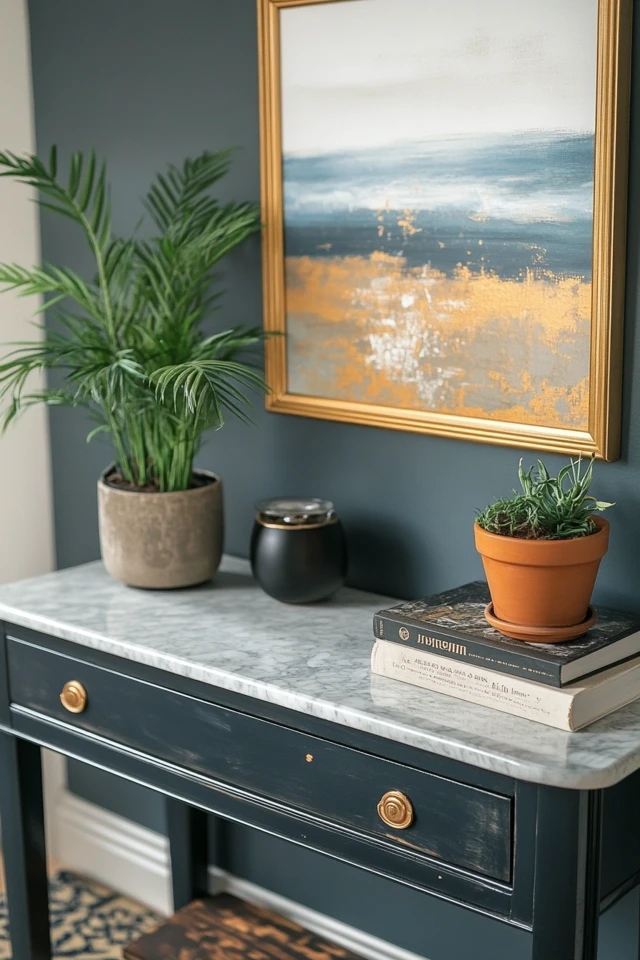
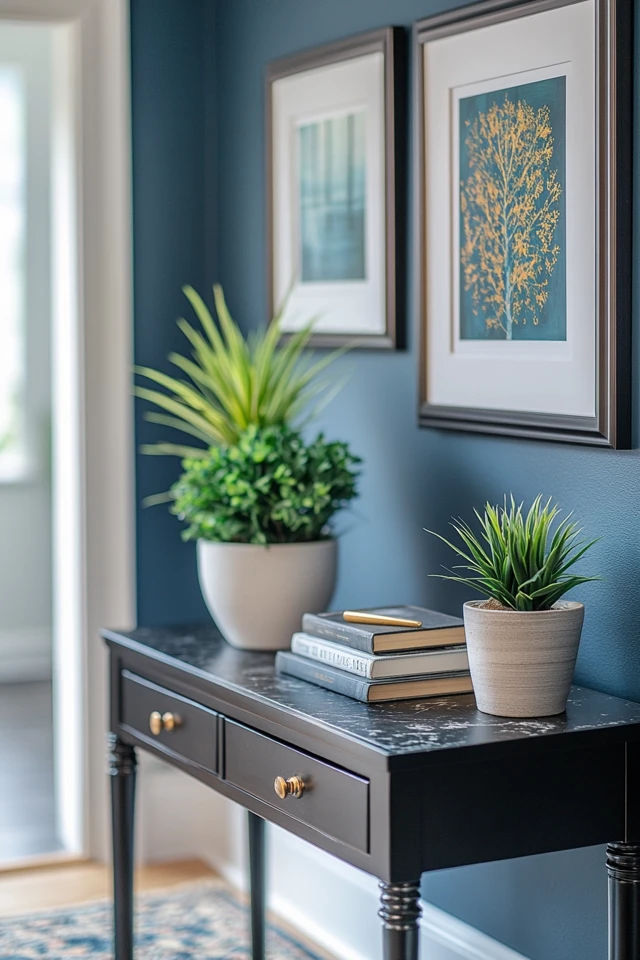
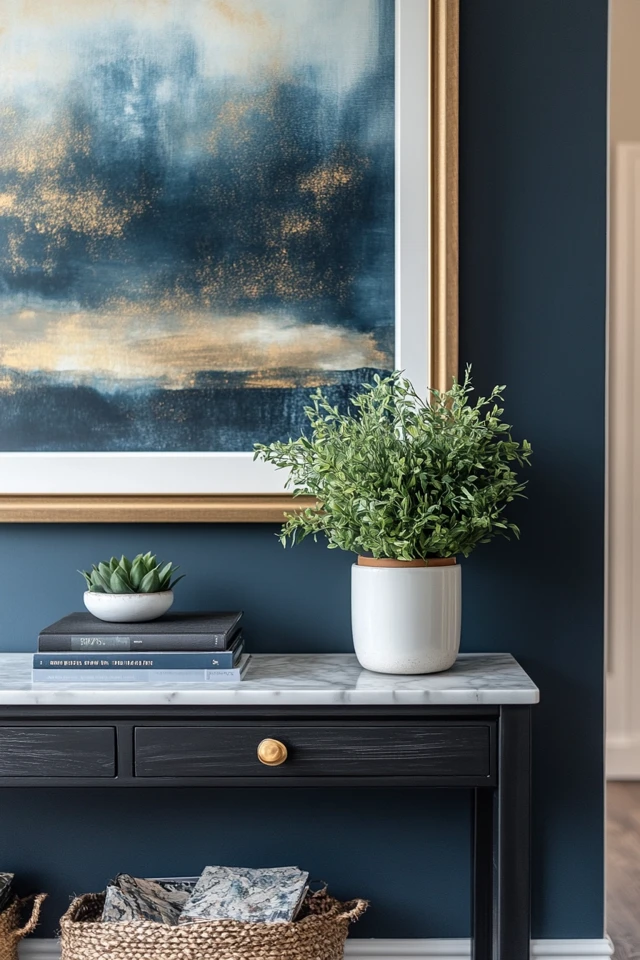
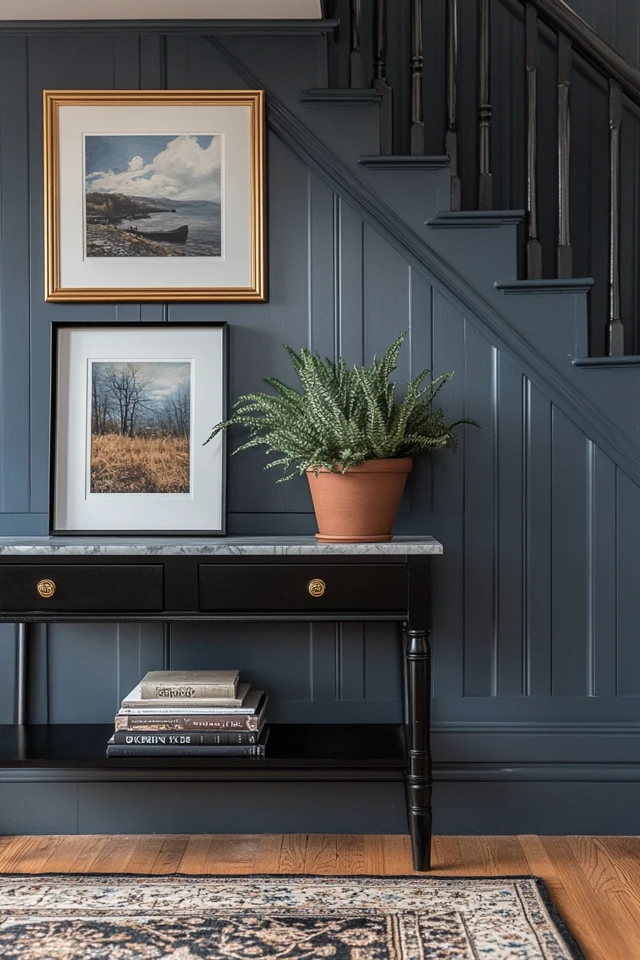
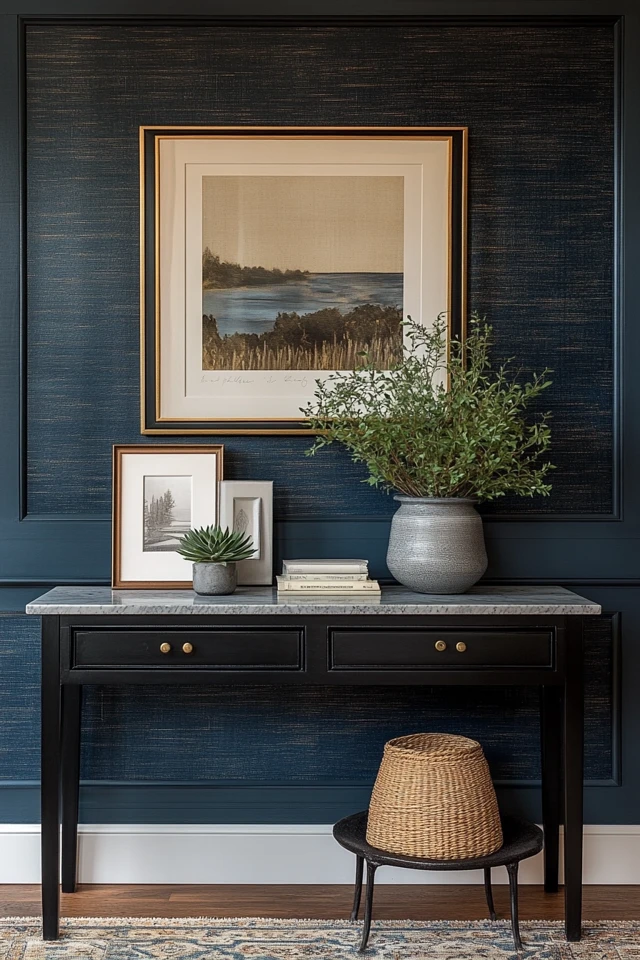
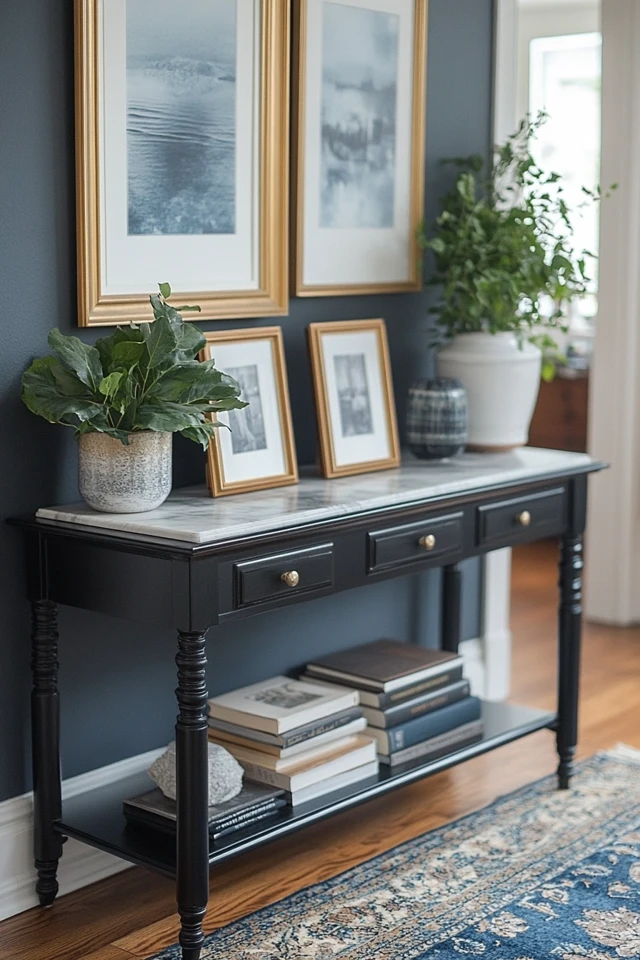
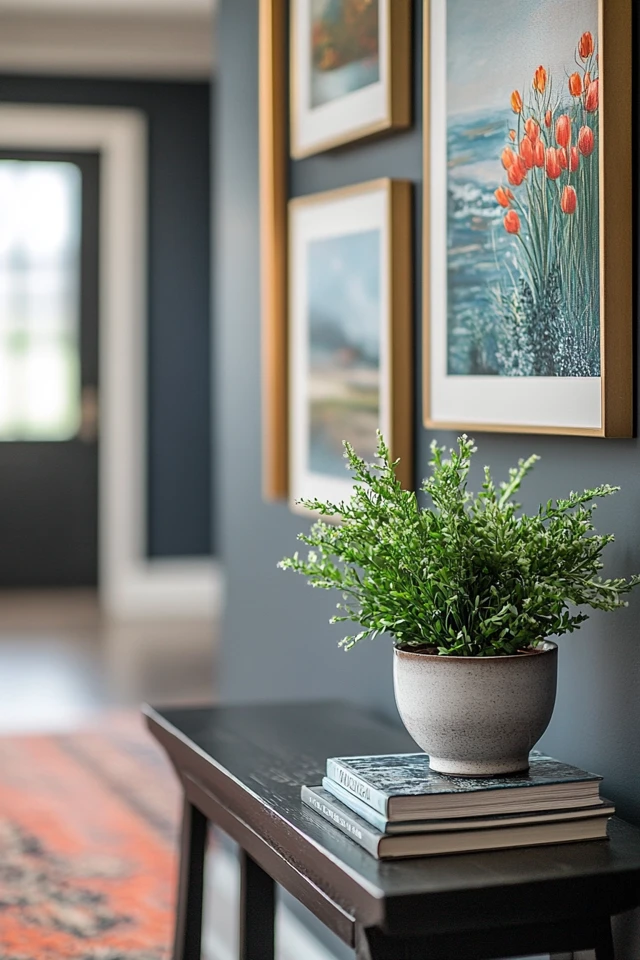
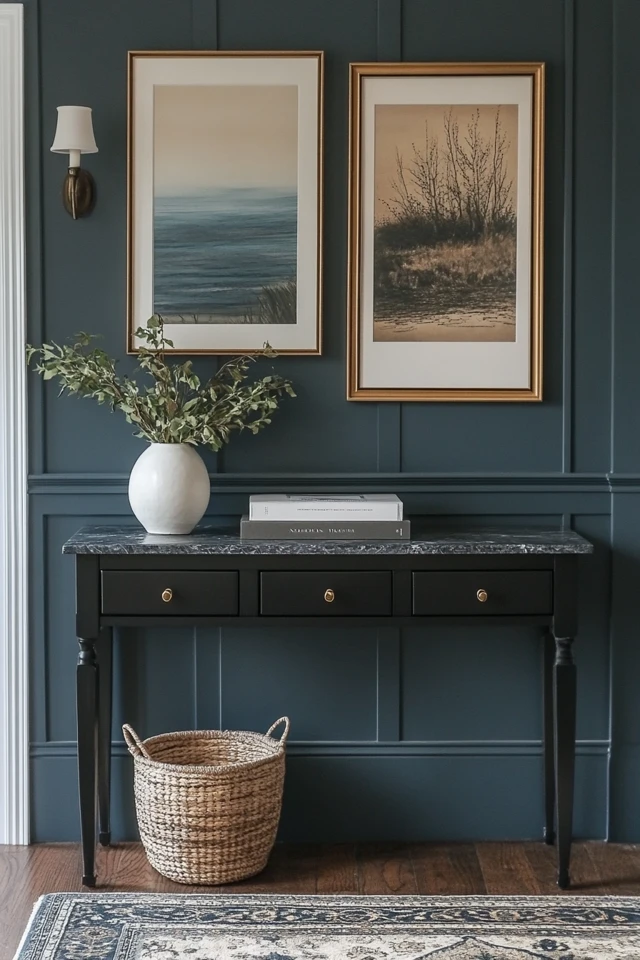
Conclusion
Wall art is more than just decoration—it’s an essential element that brings personality, warmth, and style to your home. By experimenting with gallery walls, bold colors, textures, and lighting, you can transform any room into a visually stunning space that reflects your unique taste.
Whether you’re using oversized pieces, 3D sculptures, or sentimental framed items, wall art offers endless opportunities to create a home that feels curated and cohesive.
FAQ
1. How do I choose the right size wall art?
Consider the scale of the room and furniture. For example, art above a sofa or bed should be 60–75% the width of the furniture below it.
2. What’s the best way to hang a gallery wall?
Plan your layout by arranging frames on the floor first. Use painter’s tape to map out the placement on the wall before hanging.
3. Can I mix different styles of art on one wall?
Yes! Mixing styles like abstract, photography, and illustration adds character. Use a consistent color palette to maintain cohesion.
4. What kind of art works best in small spaces?
Opt for vertical pieces or smaller collections to avoid overwhelming the space. Mirrors can also double as art while making the room feel larger.
5. How can I decorate a blank wall without using nails?
Use removable adhesive hooks, command strips, or lean framed art on shelves for a damage-free solution.

